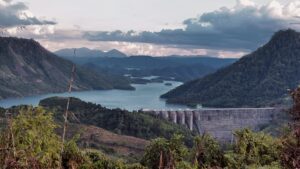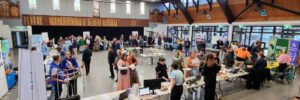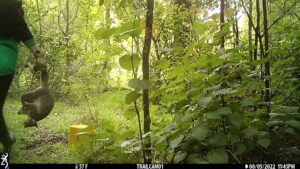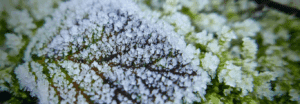Scientific writing has its own structure and vocabulary, and reading it is a specialised skill. Science teachers are uniquely placed to help students read, comprehend, and use this material. Students not only better understand the science, they also learn about how to structure their own writing.
Read MoreAotearoa NZ Power Stations | Map
2023 07 NZASE Map of selected power stations in Aotearoa NZ
Read MoreOur electricity supply system
Our country is unusual in its reliance largely on renewable sources of energy for generating electricity. How did this arise and how does it meet our needs today? Mere Manning (Kahungunu ki te Wairoa)and NZASE Communicator Mike Stone (Pākehā) investigates. Image: Clyde Dam, NZ on Screen, Iwi whitiāhua
Read MoreFreshwater ecologist Yvonne Taura
Yvonne is a freshwater ecologist who was inspired by her whanau to study environmental science.
Read MoreVolcanoes of the Waikato
Active volcanoes in Aotearoa/NZ are found in the Taupō Volcanic Zone (TVZ), and result from subduction at the plate boundary. About 2.5 million years ago (MYA) when the TVZ was just beginning to form, magma created by this plate boundary was being erupted further to the west in the central Waikato region.
Read MoreOrganising a science expo
Many tertiary organisations run science expos to connect graduates with job opportunities, and AGGS, for example, runs a science expo to encourage students into science careers. Wellington teachers ran a very successful expo in 2023 to connect teachers with science education providers (ELC, Enriched Learning Curriculum, formerly LEOTC). Mike Stone talks to some of those […]
Read MorePest control
Predator Free 2050 is an ambitious goal for Aotearoa/NZ, but achievable if everyone does their bit. NZASE Science Communicator Mike Stone draws on an expert’s knowledge and talks with teachers who have been involving students in trapping rats and possums.
Read MoreFrost | Effect on plants
Frosts can be damaging, reducing yield and quality in crops, pasture and forests. Farmers need to understand the circumstances of their location to best protect their plants. NZASE Science Communicator Mike Stone investigates.
Read MoreLaboratory building standards
2023 06 Laboratory building standards NZASE resource
Read MorePlant protection scientist Aleise Puketapu
Dr Aleise Puketapu blends cutting-edge plant protection science with mātauranga Māori to safeguard Aotearoa’s crops. As a Senior Scientist at Plant & Food Research, she develops sustainable pest control strategies and works closely with Māori communities to ensure science benefits both people and the environment.
Read More







